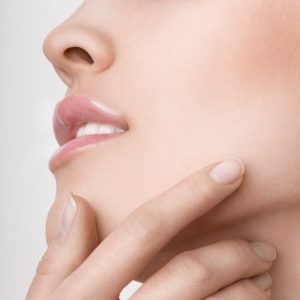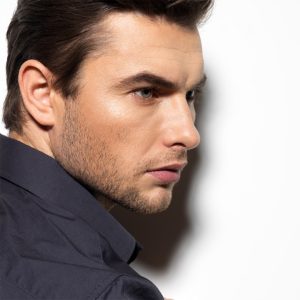 Obstructive sleep apnea (OSA) is a serious, and at times, life-threatening condition. Undiagnosed OSA presents various risks such as stroke, heart attack, irregular heartbeat, heart disease, high blood pressure, and reduced libido.
Obstructive sleep apnea (OSA) is a serious, and at times, life-threatening condition. Undiagnosed OSA presents various risks such as stroke, heart attack, irregular heartbeat, heart disease, high blood pressure, and reduced libido.
Moreover, OSA can lead to drowsiness in the daytime which can result in productivity loss, accidents, and relationship issues.
According to estimates by the National Sleep Foundation, around 18 million adults have OSA. This condition also likely affects around 2 to 3 percent of children. Despite these staggering numbers, people with OSA may not realize that they have a problem.
If a person receives feedback from someone close to them that they snore loudly or wake up abruptly, gasping for air, they should consult an experienced Oral and Maxillofacial Surgeon (OMS).
Oral and maxillofacial surgeon Dr. Landon D. McLain provides treatments to patients in Huntsville, Madison, Florence, Decatur, Scottsboro, Cullman, Athens, Alabama, and surrounding communities.
What is OSA?
The upper airway can be blocked during sleep due to excess tissue, large tonsils, and/or a large tongue. The airway muscles (which relax and contract during sleep), nasal airways, and position of the jaw may also further aggravate the condition.
Breathing cessation, or “apnea,” occurs when these factors trigger impulses in the brain to wake the individual just enough to restart the process of breathing. Sleep apnea is often defined as the presence of over 30 apneas during the course of a seven-hour sleep.
Patients with severe apnea may experience periods of not breathing for as long as 60 to 90 seconds, and these may recur up to 500 times a night.
Treatments
The OMS will recommend the most appropriate treatment for the patient depending on whether their OSA is mild, moderate or severe. Treatments range from behaviour modification to oral appliances to air pressure instruments.
While surgery may be an effective solution for some patients, it is vital to remember that no surgical treatment is universally successful. The nose and throat structure of every patient is different.
Therefore, the OMS will measure the airway at various points to check for any irregular air flow from the nose to lungs before recommending surgery.
An OMS has substantial experience and extensive training and skill to undertake the below mentioned surgical procedures:
Uvulopalatopharyngoplasty (UPPP)
This surgery involves shortening and stiffening the soft palate by partially eliminating the uvula and reducing the soft palate’s edge.
Hyoid Suspension
The hyoid bone lies above the level of the thyroid cartilage (Adam’s apple). Hyoid Suspension involves securing the hyoid bone to the thyroid cartilage to stabilize this part of the airway.
Genioglossus Advancement (GGA)
GGA involves tightening the front portion of the tongue tendon to reduce the degree of tongue displacement into the throat. In general, this procedure is undertaken with at least one other surgical procedure such as hyoid suspension or UPPP.
Maxillomandibular Advancement (MMA)
In this procedure, the OMS surgically moves the upper and lower jaws forward along with the soft tissues of the palate and tongue, opening the upper airway. The MMA may be the only viable technique for some patients to develop the necessary air passageway successfully.
Anti-Snoring Devices
Various oral and nasal anti-snoring devices are available in the market today to help prevent patients from snoring. The treatment provider can recommend the most suitable devices for the patient depending on their condition. Devices such as nasal dilators, chin strips, nasal strips, and vestibular shields can help prevent snoring.
Oral and maxillofacial surgeon Dr. Landon D. McLain receives patients from Huntsville, Madison, Florence, Decatur, Scottsboro, Cullman, Athens, Alabama, and nearby areas.
McLain Surgical Arts is a leading cosmetic surgery practice headed by Dr. Landon D. McLain MD, DMD, FACS in Huntsville, AL. Dr. McLain is a double board certified cosmetic and oral & maxillofacial surgeon, offering a variety of procedures such as dental implants, wisdom teeth extraction, breast augmentation, liposuction, rhinoplasty, tummy tuck, facelift, Botox, and laser skin resurfacing. For more information or to schedule a consultation call 256.429.3411 or click here.
Now taking patients from Huntsville, Scottsboro, Decatur, Madison, Athens, Florence, Cullman, AL and surrounding areas.
 The temporomandibular joint (TMJ) refers to a small joint which is located in the front of the ear where the skull meets the lower jaw. It provides the lower jaw with the ability to move and function.
The temporomandibular joint (TMJ) refers to a small joint which is located in the front of the ear where the skull meets the lower jaw. It provides the lower jaw with the ability to move and function.
The occurrence of TMJ disorders is not uncommon. People with such disorders may experience various symptoms, including headaches, earaches, and challenges in opening their mouth.
Oral and maxillofacial surgeon Dr. Landon D. McLain provides treatments to patients in Huntsville, Madison, Florence, Decatur, Scottsboro, Cullman, Athens, Alabama, and surrounding communities.
Diagnosis
The patient should consult an oral and maxillofacial surgeon (OMS) when symptoms of TMJ related problems surface. An OMS specializes in areas of the teeth, mouth, and jaws allowing them to diagnose the issue accurately.
The diagnosis of TMJ disorders can be challenging and may warrant various diagnostic procedures. The OMS may order special imaging tests of the joint as well as refer the patient to other dental or medical specialist or a physical therapist.
Sometimes TMJ arthroscopy is used to diagnose a TMJ condition. In this procedure, the doctor inserts a narrow tube (cannula) into the joint space. After that they insert a tiny camera, known as an arthroscope, to view the area and diagnose the condition.
Treatment
The treatment of TMJ disorders may range from conservative medical and dental care to complex surgery. The treatment may include short-term non-steroidal anti-inflammatory medications for pain relief and muscle relaxation, splint or bite plate therapy, or stress management consulting.
If nonsurgical treatment is ineffective, or there is extensive joint damage, the patient may have to undergo surgery. The surgical procedure may be arthroscopic or involve a direct surgical approach to repair damaged tissue.
After the correct diagnosis of the TMJ disorder, the OMS can recommend the most suitable treatment to address the problem.
Surgical or Other Procedures
In case other methods are ineffective the doctor may recommend the following procedures:
Arthrocentesis
This minimally invasive procedure involves inserting tiny needles within the joint to irrigate fluid through the joint in order to flush out debris and inflammatory byproducts.
Injections
Injecting corticosteroid into the joint may be helpful for some patients. At times, botulinum toxin type A (Botox, others) injections in the jaw muscles may offer relief from pain associated with TMJ disorders.
TMJ Arthroscopy
Sometimes arthroscopic surgery can be as effective in treating different types of TMJ disorders as conventional open-joint surgery. In this procedure, the surgeon inserts a narrow tube (cannula) within the joint space.
After this, they insert an arthroscope and tiny surgical instruments for the procedure. In comparison to open-joint surgery, TMJ arthroscopy has fewer risks and complications. However, it also involves certain limitations.
Modified Condylotomy
Modified condylotomy treats TMJ disorders indirectly. This procedure involves surgery on the mandible rather than the joint itself. This may be a suitable treatment option for patients experiencing pain and locking.
Open-Joint Surgery
If more conservative approaches are unable to relieve the jaw pain and it appears to occur due to a structural issue within the joint, the doctor or dentist may recommend arthrotomy (open-joint surgery) to restore or replace the joint.
Oral and maxillofacial surgeon Dr. Landon D. McLain receives patients from Huntsville, Madison, Florence, Decatur, Scottsboro, Cullman, Athens, Alabama, and nearby areas.
McLain Surgical Arts is a leading cosmetic surgery practice headed by Dr. Landon D. McLain MD, DMD, FACS in Huntsville, AL. Dr. McLain is a double board certified cosmetic and oral & maxillofacial surgeon, offering a variety of procedures such as dental implants, wisdom teeth extraction, breast augmentation, liposuction, rhinoplasty, tummy tuck, facelift, Botox, and laser skin resurfacing. For more information or to schedule a consultation call 256.429.3411 or click here.
Now taking patients from Huntsville, Scottsboro, Decatur, Madison, Athens, Florence, Cullman, AL and surrounding areas.
 An oral and maxillofacial surgeon (OMS) specializes in diagnosing and surgically treating cancer of the neck, head, and mouth.
An oral and maxillofacial surgeon (OMS) specializes in diagnosing and surgically treating cancer of the neck, head, and mouth.
According to estimates by the Oral Cancer Foundation, around 42,000 Americans will be diagnosed with oral or pharyngeal cancer this year. The mortality rates of oral cancer are especially high.
This type of cancer is not hard to diagnose or detect, but it is typically discovered in its later stages of development. The family dentist or OMS is most likely to detect oral cancer at the time of routine dental exams.
Oral and maxillofacial surgeon Dr. Landon D. McLain provides treatments to patients in Huntsville, Madison, Florence, Decatur, Scottsboro, Cullman, Athens, Alabama, and surrounding locations.
How to Perform an Oral Cancer Self-Exam
Everybody should perform an oral cancer self-exam on a monthly basis. Bright light and a mirror are required for an oral examination.
- Take out any dentures
- See and feel inside the lips and front of the gums
- Tilt the head back to view and feel the roof of the mouth
- Pull the cheek out to view its inside surface and the back of the gums
- Pull the tongue out and examine all of its surfaces
- Feel both sides of the neck, including under the lower jaw, for enlarged lymph nodes (glands) or lumps
Look for the following when performing a self-examination:
- Red patches (erythroplakia)
- White patches of the oral tissues (leukoplakia)
- Red and white patches (erythroleukoplakia)
- A sore that does not heal and bleeds easily
- Thickening of the mouth tissues or an abnormal lump
- Chronic hoarseness or a sore throat
- Hard to chew or swallow
- A lump or mass in the neck
The mouth represents one of the body’s primary early warning systems. Pay close attention to any suspicious sores or lumps. Upon discovering something, make a prompt appointment with the dentist or OMS. Early treatment may facilitate complete recovery.
How is Oral Cancer Treated?
The treatment for oral cancer varies based on the location, stage, and type of cancer at diagnosis.
Surgery
Early stage cancer treatment typically involves surgery to eliminate the tumor and cancerous lymph nodes. Furthermore, the surgeon may need to take out other tissue around the neck and mouth.
Radiation therapy
Radiation therapy is another treatment option for oral cancer. In this procedure, a doctor aims radiation beams at the tumor one or two times a day, five days a week, for between two to eight weeks. Advanced stage cancer treatment often involves a combination of radiation therapy and chemotherapy.
Chemotherapy
Chemotherapy involves the use of medication to eliminate cancer cells. The patient is given drugs either by mouth or through an intravenous (IV) line. While most patients receive chemotherapy on an outpatient basis, some may require a hospital stay.
Targeted Therapy
Another form of treatment is known as targeted therapy. This treatment can be effective in the early as well as advanced stages of cancer. The drugs used in targeted therapy will attach to certain proteins on cancer cells and inhibit their growth.
Nutrition
Nutrition also comprises an integral part of oral cancer treatment. Patients commonly experience difficulty or pain while eating and swallowing after many treatments. Therefore, poor appetite and weight loss are a common side effect. The patient should ensure that they discuss their diet with their doctor.
Oral and maxillofacial surgeon Dr. Landon D. McLain receives patients from Huntsville, Madison, Florence, Decatur, Scottsboro, Cullman, Athens, Alabama, and nearby areas.
McLain Surgical Arts is a leading cosmetic surgery practice headed by Dr. Landon D. McLain MD, DMD, FACS in Huntsville, AL. Dr. McLain is a double board certified cosmetic and oral & maxillofacial surgeon, offering a variety of procedures such as dental implants, wisdom teeth extraction, breast augmentation, liposuction, rhinoplasty, tummy tuck, facelift, Botox, and laser skin resurfacing. For more information or to schedule a consultation call 256.429.3411 or click here.
Now taking patients from Huntsville, Scottsboro, Decatur, Madison, Athens, Florence, Cullman, AL and surrounding areas.
 An oral and maxillofacial surgeon (OMS) performs corrective jaw surgery, or orthognathic surgery, to correct a variety of minor and major dental and skeletal irregularities, including misaligned jaws, and teeth.
An oral and maxillofacial surgeon (OMS) performs corrective jaw surgery, or orthognathic surgery, to correct a variety of minor and major dental and skeletal irregularities, including misaligned jaws, and teeth.
Surgery can improve activities such as breathing, chewing, and speaking. Orthognathic surgery can significantly improve the patient’s appearance, but it is primarily undertaken to address functional issues.
Oral and maxillofacial surgeon Dr. Landon D. McLain provides treatments to patients in Huntsville, Madison, Florence, Decatur, Scottsboro, Cullman, Athens, Alabama, and surrounding locations.
Who May Need Jaw Surgery?
Patients experiencing the following conditions may require corrective jaw surgery:
- Difficulty swallowing
- Problems in chewing or biting food
- Chronic jaw or jaw joint (TMJ) pain and headaches
- Excessive wear of the teeth
- An unbalanced facial appearance from the front or side
- Facial injury
- Inability to make the lips meet without straining
- Open bite (the space between the upper and lower teeth when the mouth is closed)
- Birth defects
- Receding lower chin and jaw
- A protuberant jaw
- Sleep apnea (breathing issues when sleeping, such as snoring)
- Chronic mouth breathing
To determine whether the patient is a candidate for corrective jaw surgery, their dentist, orthodontist, and OMS will work together. The OMS surgeon will determine which orthognathic surgery technique is most suitable and perform the actual procedure.
Patients must understand that their treatment, which will likely include orthodontics pre and post surgery, may take a number of years to complete. The OMS and orthodontist will try to provide a realistic estimate of the time required for the patient’s treatment with the understanding that it is a long-term commitment on the part of the patient and their family.
Upper jaw (Maxillary Osteotomy)
In this procedure, the OMS surgeon places incisions in the upper jaw. They then move it up, down, forward, or backward, depending on the patient’s needs, and secure it with screws and plates.
Maxillary Osteotomy can help correct the following conditions:
- Crossbite
- Open bite
- A protuberant or very receded upper jaw
- Too much or too little teeth showing
- Reduced facial growth of the midface (midfacial hypoplasia)
The surgeon will cut the bone above the teeth to enable the whole upper jaw, including the mouth’s roof and upper teeth, to move as one unit. They will move the jaw and upper teeth forward until they are correctly aligned to the lower teeth.
This procedure can be planned on a computer to establish whether additional work, such as orthodontics, will be required to address any remaining difference in the fit.
An open bite develops when extra bone grows above the molars. This causes the surface to become angled when it should be flat and even. The surgeon will correct this condition by trimming away or excising the excess bone.
After the jaw is repositioned, the surgeon will use screws and plates to hold the bone in its new placement.
Lower Jaw (Mandibular Osteotomy)
In this procedure, the OMS surgeon divides the lower jaw and moves the front section forward or backward and secures with screws and plates.
Lower jaw surgery can correct the following conditions:
- Protruding lower jaw
- Receding lower jaw
The surgeon places incisions behind the molars and lengthwise along the jawbone enabling the front of the jaw to move as one unit. After repositioning the jaw by moving it either forward or backward, the surgeon secures it with screws and plates to allow it to remain in position as it heals.
Recovery
The initial jaw healing usually requires around six weeks following surgery while complete jaw healing can take up to 12 weeks.
Oral and maxillofacial surgeon Dr. Landon D. McLain receives patients from Huntsville, Madison, Florence, Decatur, Scottsboro, Cullman, Athens, Alabama, and nearby areas.
McLain Surgical Arts is a leading cosmetic surgery practice headed by Dr. Landon D. McLain MD, DMD, FACS in Huntsville, AL. Dr. McLain is a double board certified cosmetic and oral & maxillofacial surgeon, offering a variety of procedures such as dental implants, wisdom teeth extraction, breast augmentation, liposuction, rhinoplasty, tummy tuck, facelift, Botox, and laser skin resurfacing. For more information or to schedule a consultation call 256.429.3411 or click here.
Now taking patients from Huntsville, Scottsboro, Decatur, Madison, Athens, Florence, Cullman, AL and surrounding areas.
